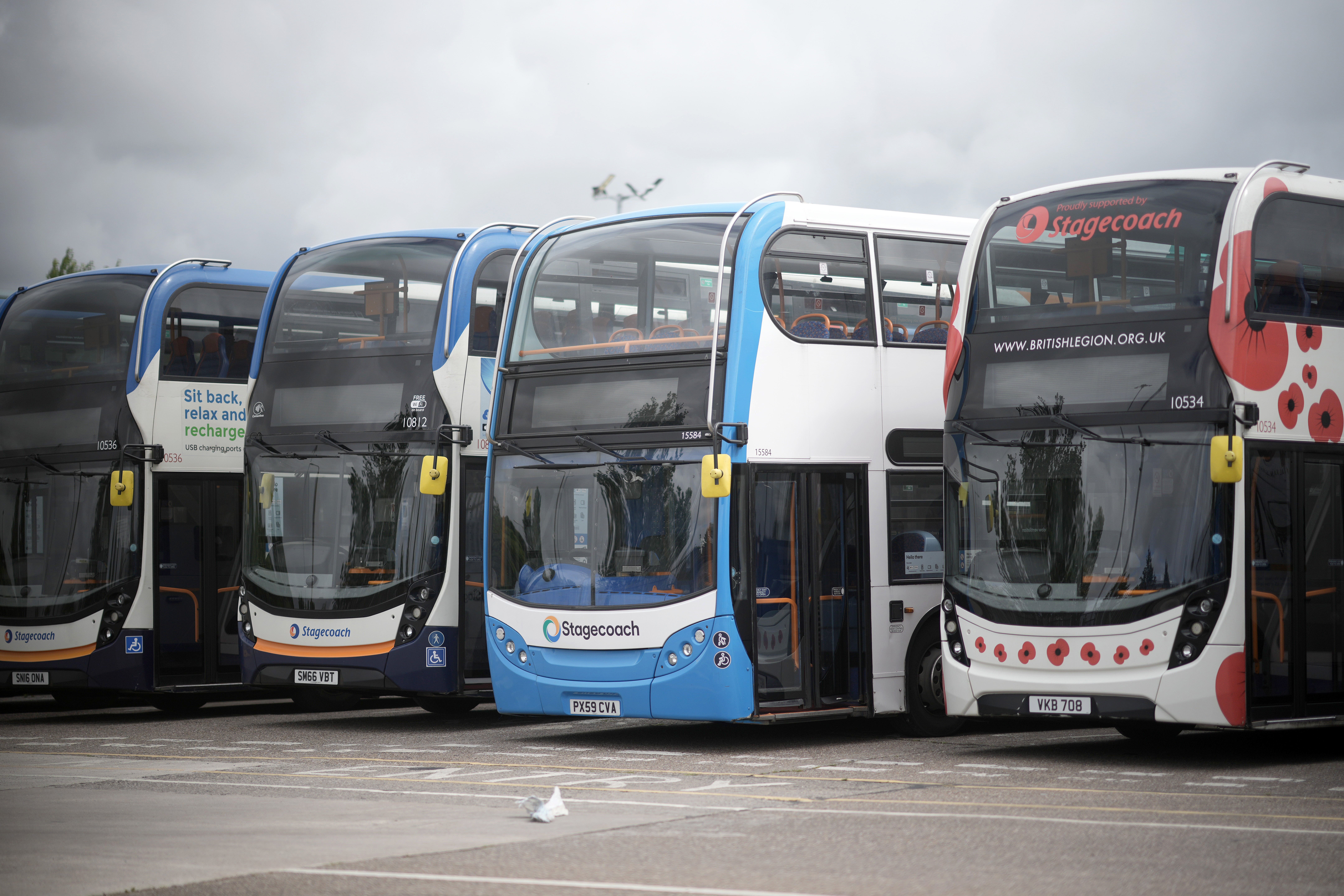National bus fare cap: When is the new fare introduced and how much does it cost?
The £1 cap increase will be introduced in January 2025

Your support helps us to tell the story
From reproductive rights to climate change to Big Tech, The Independent is on the ground when the story is developing. Whether it's investigating the financials of Elon Musk's pro-Trump PAC or producing our latest documentary, 'The A Word', which shines a light on the American women fighting for reproductive rights, we know how important it is to parse out the facts from the messaging.
At such a critical moment in US history, we need reporters on the ground. Your donation allows us to keep sending journalists to speak to both sides of the story.
The Independent is trusted by Americans across the entire political spectrum. And unlike many other quality news outlets, we choose not to lock Americans out of our reporting and analysis with paywalls. We believe quality journalism should be available to everyone, paid for by those who can afford it.
Your support makes all the difference.The government is raising the single fare cap on bus travel to £3 in a bid to keep public transport “affordable while ensuring it is fair to taxpayers”.
Prime Minister Sir Keir Starmer announced the £1 cap increase ahead of the October budget last week as part of a £1 billion funding boost for buses.
Bus fare caps, first introduced in September 2022, currently limit the cost of a single journey to £2 or less on eligible routes in some England regions, preventing price hikes.
The Department for Transport claims that the new cap will save passengers from rural communities up to 80 per cent on some bus routes.
Transport Secretary Louise Haigh said last month: “We know that reliable, affordable bus services are vital to keeping Britain moving. That’s why the government will cap fares at £3 for an additional year and provide over £1 billion to deliver better bus services.”
Here’s everything bus passengers need to know.
What is the current bus fare cap?
The existing cap on single bus fares – £2 – will end on 31 December 2024.
When does the bus fare cap go up?
From 1 January 2025, the new £3 single fare cap will be introduced until at least the end of December next year.
The cap is being funded using £151 million from the government until the end of 2025.
In the Budget it was announced that during the 2025 to 2026 financial year, the Department for Transport will invest an additional £925 million towards improving bus services.
What routes will the bus fare cap impact?
The £3 bus fare cap will apply to most bus journeys in the UK, although not all routes will be involved.
Participation in the scheme is voluntary, with some bus companies opting out of using capped fares.
Previously, regional routes from Stagecoach, Arriva and Metrobus all implemented the £2 cap.
In London, West Yorkshire and Manchester, local authorities and Metro Mayors fund their own schemes to keep fares down, and bus fares will not be affected by the £1 increase.
Andy Burnham, mayor of Greater Manchester, said he would keep the £2 cap for commuters in Greater Manchester.
Is the ‘Hopper’ fare still valid?
Hopper fares are still valid for unlimited bus and tram journeys within one hour of first touching in using the same card or device in the capital.
How much is a tram fare?
In London, a single tram fare costs £1.75 and can be paid using a contactless or Oyster card.
Is there a daily cap on Tube fares?
There are different price caps for Transport for London (TfL) travel that are dependent on Zones and on-peak and off-peak travel times.
The daily cap for bus, Tube, tram, DLR, London Overground, Elizabeth line and National Rail journeys in London are calculated over 24 hours, starting at 4.30am and ending at 4.29am the next day.
In March, Mayor Sadiq Khan announced that cap prices will increase by an average of 4.9 per cent.
Currently, the pay-as-you-go daily rate for any time travel in Zone 1 and 2 is £8.50.
For more travel news and advice, listen to Simon Calder’s podcast
Join our commenting forum
Join thought-provoking conversations, follow other Independent readers and see their replies
Comments